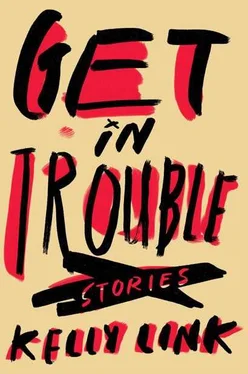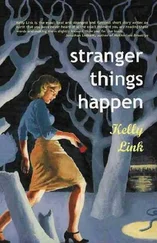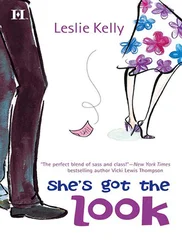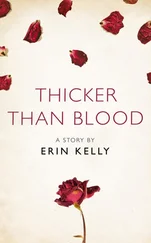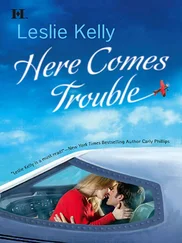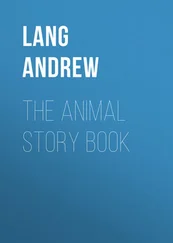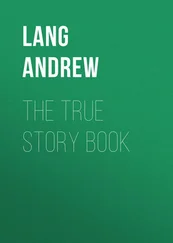“No,” Ophelia said, and then frowned. “It’s just — I’ve never seen anything like it. It’s like a Fabergé egg. It ought to be in a museum.”
There were lots of other toys. The laughing cat and the waltzing elephants; the swan you wound up, who chased the dog. Other toys that Fran hadn’t played with in years. The mermaid who combed garnets out of her own hair. Bawbees for babies, her mother had called them.
“I remember now,” Ophelia said. “When you came and played at my house. You brought a silver minnow. It was smaller than my little finger. We put it in the bathtub, and it swam around and around. You had a little fishing rod, too, and a golden worm that wriggled on the hook. You let me catch the fish, and when I did, it talked. It said it would give me a wish if I let it go.”
“You wished for two pieces of chocolate cake,” Fran said.
“And then my mother made a chocolate cake, didn’t she?” Ophelia said. “So the wish came true. But I could only eat one piece. Maybe I knew she was going to make a cake? Except why would I wish for something that I already knew I was going to get?”
Fran said nothing. She watched Ophelia through slit eyes.
“Do you still have the fish?” Ophelia asked.
Fran said, “Somewhere. The clockwork ran down. It didn’t give wishes no more. I reckon I didn’t mind. It only ever granted little wishes.”
“Ha ha,” Ophelia said. She stood up. “Tomorrow’s Saturday. I’ll come by in the morning to make sure you’re okay.”
“You don’t have to,” Fran said.
“No,” Ophelia said. “I don’t have to. But I will.”
When you do for other people (Fran’s daddy said once upon a time when he was drunk, before he got religion) things that they could do for themselves, but they pay you to do it instead, you both will get used to it.
Sometimes they don’t even pay you, and that’s charity. At first, charity isn’t comfortable, but it gets so it is. After some while, maybe you start to feel wrong when you ain’t doing for them, just one more thing, and always one more thing after that. Might be you start to feel as you’re valuable. Because they need you. And the more they need you, the more you need them. Things tip out of balance. You need to remember that, Franny. Sometimes you’re on one side of that equation, and sometimes you’re on the other. You need to know where you are and what you owe. Unless you can balance that out, here is where y’all stay.
Fran, dosed on NyQuil, feverish and alone in her great-grandfather’s catalog house, hidden behind walls of roses, dreamed — as she did every night — of escape. She woke every few hours, wishing someone would bring her another glass of water. She sweated through her clothes, and then froze, and then boiled again.
She was still on the couch when Ophelia came back, banging through the screen door. “Good morning!” Ophelia said. “Or maybe I should say good afternoon! It’s noon, anyhow. I brought oranges to make fresh orange juice, and I didn’t know if you liked sausage or bacon so I got you two different kinds of biscuit.”
Fran struggled to sit up.
“Fran,” Ophelia said. She came and stood in front of the sofa, holding a cat-head biscuit in each hand. “You look terrible.” She brushed her knuckles over Fran’s forehead. “You’re burning up! I knew I oughtn’t’ve left you here all by yourself! What should I do? Should I take you down to the emergency?”
“No doctor,” Fran said. “They’ll want to know where my daddy is. Water?”
Ophelia scampered back to the kitchen. “You need antibiotics. Or something. Fran?”
“Here,” Fran said. She lifted a bill off a stack of mail on the floor, pulled out the return envelope. She plucked out three strands of her hair. She put them in the envelope and licked it shut. “Take this up the road where it crosses the drain,” she said. “All the way up.” She coughed. Dry things rattled around down inside her lungs. “When you get to the big house, go round to the back and knock on the door. Tell them I sent you. You won’t see them, but they’ll know you come from me. After you knock, you go in. Go upstairs directly, you mind, and put this envelope under the door. Third door down the hall. You’ll know which. After that, you oughter wait out on the porch. Bring back whatever they give you.”
Ophelia gave her a look that said Fran was delirious. “Just go,” Fran said. “If there ain’t a house, or if there is a house and it ain’t the house I’m telling you ’bout, then come back and I’ll go to the emergency with you. Or if you find the house, and you’re afeared and you can’t do what I asked, come back, and I’ll go with you. But if you do what I tell you, it will be like the minnow.”
“Like the minnow?” Ophelia said. “I don’t understand.”
“You will. Be bold,” Fran said, and did her best to look cheerful. “Like the girls in those ballads. Will you bring me another glass of water afore you go?”
Ophelia went.
Fran lay on the couch, thinking about what Ophelia would see. From time to time, she raised a curious sort of spyglass — something much more useful than any bawbee — to her eye. Through it she saw first the dirt track, which only seemed to dead-end. Were you to look again, you found your road crossing over the shallow crick, the one climbing the mountain, the drain running away and down. The meadow disappeared again into beds of laurel, then trees hung all over with climbing roses, so that you ascended in drifts of pink and white. A stone wall, tumbled and ruint, and then the big house. The house, dry-stack stone, stained with age like the tumbledown wall, two stories. A slate roof, a long slant porch, carved wooden shutters making all the eyes of the windows blind. Two apple trees, crabbed and old, one laden with fruit and the other bare and silver black. Ophelia found the mossy path between them that wound around to the back door with two words carved over the stone lintel: BE BOLD.
And this is what Fran saw Ophelia do: having knocked on the door, Ophelia hesitated for only a moment, and then she opened it. She called out, “Hello? Fran sent me. She’s ill. Hello?” No one answered.
So Ophelia took a breath and stepped over the threshold and into a dark, crowded hallway with a room on either side and a staircase in front of her. On the flagstone in front of her were carved the words: BE BOLD, BE BOLD. Despite the invitation, Ophelia did not seem tempted to investigate either room, which Fran thought wise of her. The first test a success. You might expect that through one door would be a living room, and you might expect that through the other door would be a kitchen, but you would be wrong. One was the Queen’s Room. The other was what Fran thought of as the War Room.
Fusty stacks of magazines and catalogs and newspapers, encyclopedias and gothic novels leaned against the walls of the hall, making such a narrow alley that even lickle tiny Ophelia turned sideways to make her way. Dolls’ legs and silverware sets and tennis trophies and mason jars and empty matchboxes and false teeth and still chancier things poked out of paper bags and plastic carriers. You might expect that through the doors on either side of the hall there would be more crumbling piles and more odd jumbles, and you would be right. But there were other things, too. At the foot of the stairs was another piece of advice for guests like Ophelia, carved right into the first riser: BE BOLD, BE BOLD, BUT NOT TOO BOLD.
The owners of the house had been at another one of their frolics, Fran saw. Someone had woven tinsel and ivy and peacock feathers through the banisters. Someone had thumbtacked cut silhouettes and Polaroids and tintypes and magazine pictures on the wall alongside the stairs, layers upon layers upon layers; hundreds and hundreds of eyes watching each time Ophelia set her foot down carefully on the next stair.
Читать дальше
